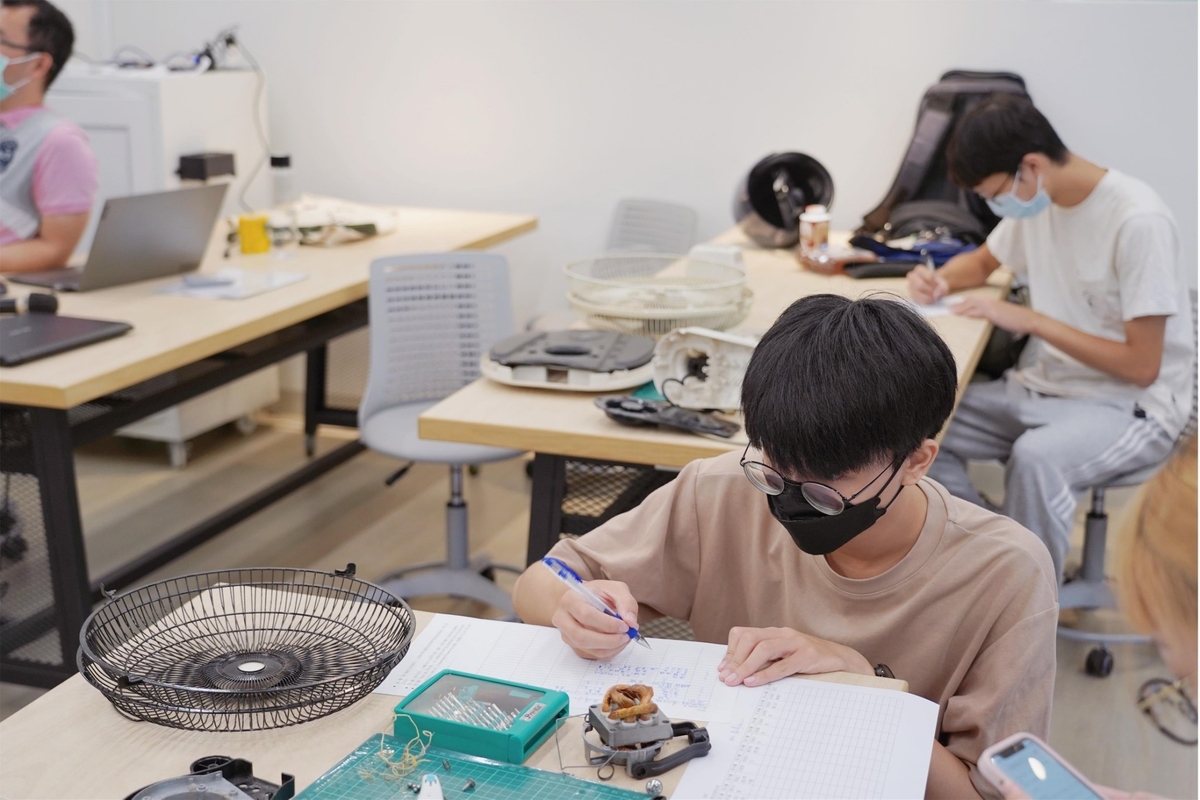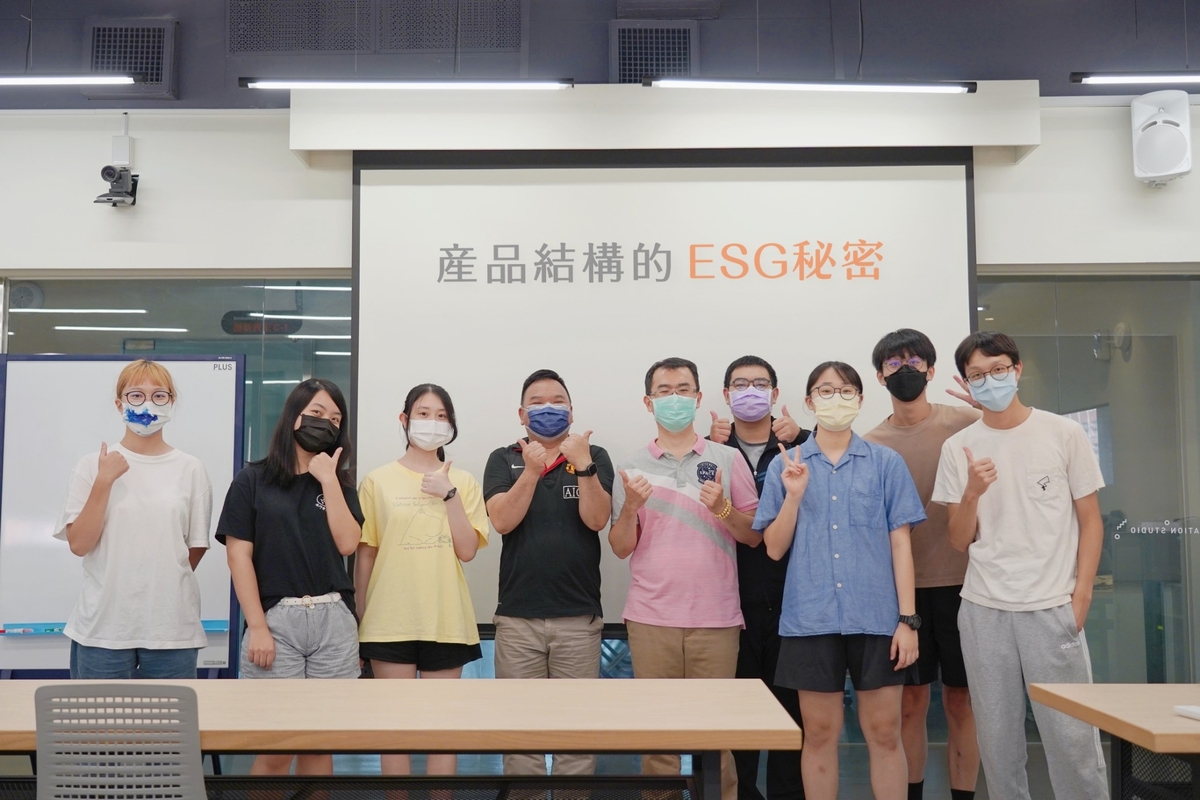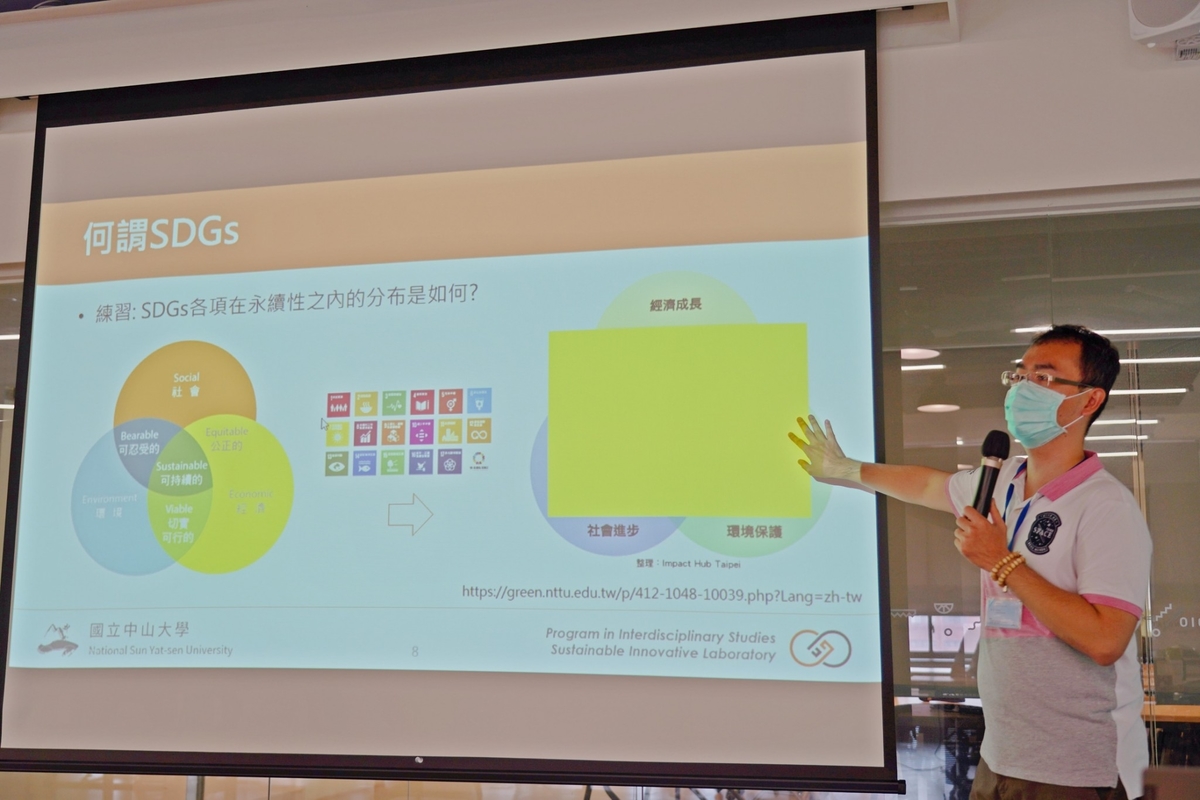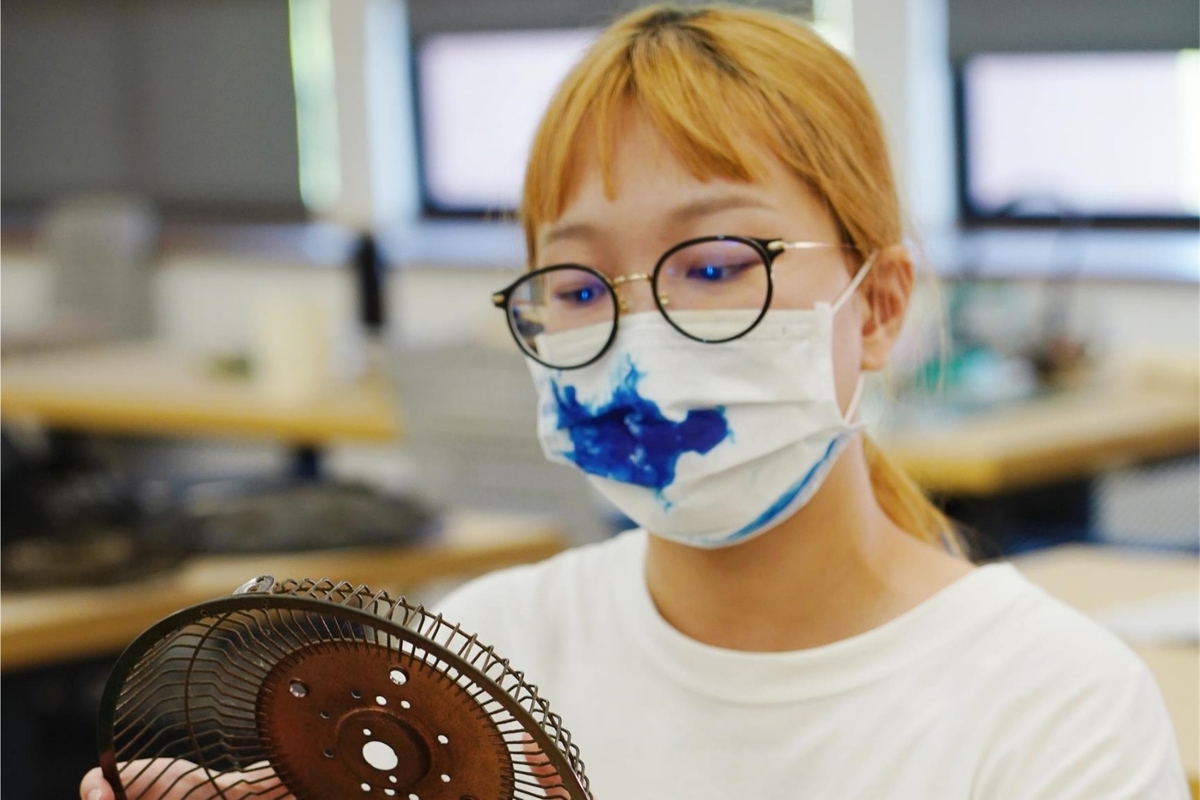The Program in Interdisciplinary Studies (PIS) at National Sun Yat-sen University held a two-day workshop on “ESG Secrets of Product Structure”, promoting knowledge of sustainable design among students taking electric fans as an example. Assistant Professors Cheng-Jung Yang and Hao-Ching Hsia of PIS explained the meaning of ESG (Environmental, Social, and Corporate Governance) using examples from everyday life and guided the participants to disassemble an electric fan and understand its structure. The students learned how to draw assembly drawings, write down a materials list, then disassemble the product and evaluate it; the hands-on part let them better remember what they learned.
During the workshop, Professor Yang guided the students to analyze what is sustainable design, SDGs, and ESG and summarized all UN’s 17 Sustainable Development Goals. Professor Hsia also explained how sustainable design is applied to urban planning and combined it with the trendy topic of smart cities to reflect on strategies and practices for a more sustainable environment. During the discussion, students and faculty listed the possible reasons for the issues to position them and mentioned NSYSU’s past contributions to the SDGs.
Besides understanding SDGs, the workshop also included a hands-on activity: disassembling electric fans. It was the first time to disassemble an electric fan for most of the students. Each student chose a different type of electric fan and dismantled it by themselves. In the process, they had to make a list of the dismantled parts – product material list, draw an assembly drawing, and number the parts and record the order in which they were disassembled. Later, when performing the disassembly evaluation and index calculation based on information such as recovery degree, disassembly method, time, and indexes, they calculated parts recovery rate, work and disassembly efficiency, and evaluated the sustainability of the product’s design.
The participating students gave positive feedback. Mu-Fang Yang, a freshman of PIS was glad to have participated in the workshop and learned important knowledge that normally she would not take note of. Her fellow student, Ti-Hua Hung, also mentioned that the workshop was an escape from the classroom routine and that she benefitted from learning more about the product structure by dismantling the electric fan and understanding the way to record the product parts. Assistant Professors Cheng-Jung Yang and Hao-Ching Hsia said that the workshop included a practical hands-on part to attract students to participate and learn about the mechanical construction of electric fans, but more importantly, they hoped that more people would understand that sustainable design can be omnipresent. We must take our environmental impact seriously, learn from experience, and use our knowledge to find ways to improve the policy and strive for environmental sustainability.










